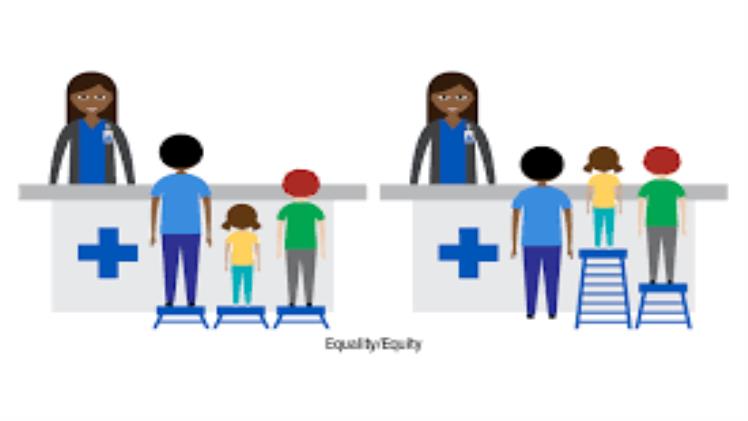Health Disparities and the Importance of Healthcare Equity

Health disparities refer to differences in health outcomes experienced by groups who differ from others, due to factors like race and ethnicity, socioeconomic status, age, gender, primary language spoken at home, disability status or sexual orientation.
Health disparities affect us all and require community-wide efforts that range from educational programs, advocacy, and policy creation. COVID-19 pandemic and healthcare equity movement has highlighted the necessity of addressing disparities and working toward attaining healthcare equity.
Evidence clearly illustrates the connection between social determinants of health (such as education, employment, housing and income) and health outcomes. Economic disadvantage leads to uneven living conditions that subsequently impact upon one’s health – contributing to decreased levels of health literacy as well as higher rates of chronic disease, depression, drug abuse mental illness or premature mortality.
These conditions are also related to lack of access to quality medical care, as well as availability of health insurance. A substantial percentage of those without health coverage live in states which did not expand Medicaid under the Affordable Care Act; this is especially true among Black Americans. Rural communities face additional barriers that prevent access to healthcare.
Racial and ethnic health disparities may seem impossible to bridge, yet there are various strategies available to healthcare facilities to address them. Many strategies focus on providing patients with resources they need to make better health choices; others collect data based on race/ethnicity/sex and primary language to identify areas for improvement.
Other strategies to enhance health outcomes and diminish disparities include expanding patient outreach and engagement, increasing culturally competent healthcare providers, offering language and literacy assistance, and creating policies to ensure all patients have equal chances at living long lives free from serious health concerns. Health care administrators can help decrease health disparities by joining initiatives undertaken by agencies, coalitions, boards, or councils dedicated to better living conditions or health outcomes.
To eliminate health disparities, all members of society must work collaboratively towards building healthier communities. Furthermore, stakeholders in their respective areas should support efforts aimed at creating healthcare equality. Support community-based organizations dedicated to equitable development, lobby for legislation that reduces healthcare disparities, and vote for politicians who advocate for equitable efforts. People can become active participants in community endeavors and contribute to the fight for justice by taking part in nonviolent activism against racial and social inequality. Such efforts serve as reminders that we are connected; sooner we recognize this, the sooner real progress can be made towards health equity.